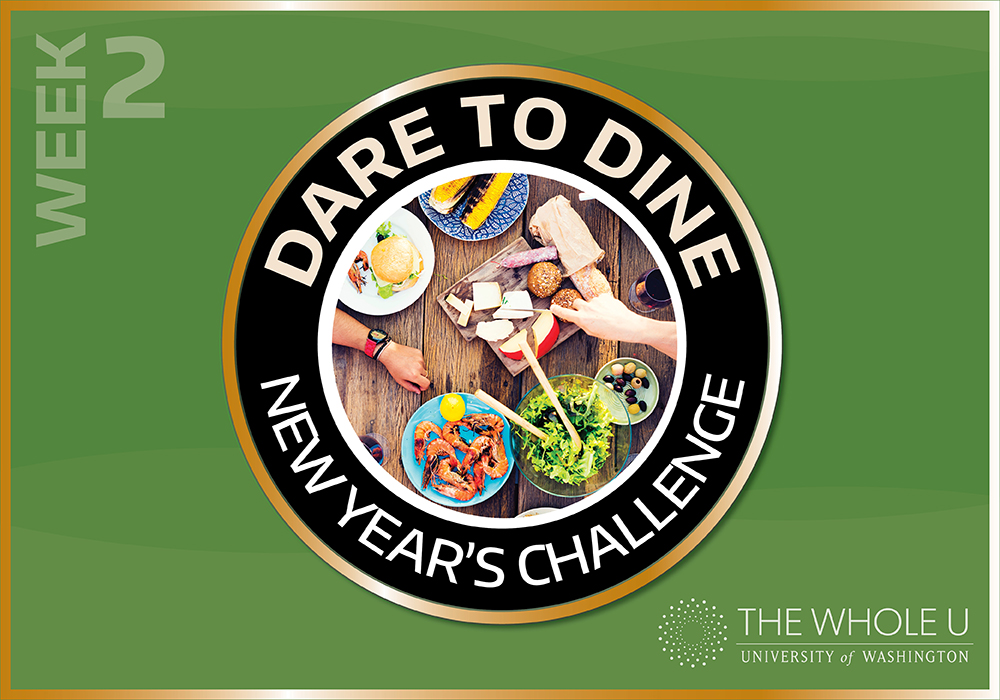
Dare to Dine
Eating is a simple act. We place food into our mouths, chew it, and swallow it. We consume food for sustenance, energy, and growth.
Dining, however, goes beyond the act of eating. Dining is the experience of eating. As Yuan Mei, Chinese poet, scholar, artist, and gastronome of the Qing Dynasty put it, “There is a difference between dining and eating. Dining is an art. When you eat to get most out of your meal … that, my friend, is dining.”
Our hectic, fast-paced, stressful lives oftentimes lead us to eating the first thing that is available to us, and eating it quickly, frequently alone. Many times we don’t even notice what our food taste like, because of the constant stream of digital distractions in our daily routines. Not to mention sharing a meal with others has become a rare occurrence.
Although the word dining is often associated with fine dining at high-end restaurants, you don’t need fancy table settings, extravagant food, or an exorbitant amount of money to dine. You just need to take the time to savor food and enjoy the experience, no matter where you are – at home, at work, or at a restaurant.
For week two of the challenge, let’s focus on dining rather than simply eating. And if you haven’t already registered for the Dare to Do New Year’s Challenge you can sign up here.
Here are a few things you can try to enjoy food and the experience of eating more fully:
Make time for food. Even if you feel you don’t have time, try to take a lunch break. You might feel like you are being more productive if you are eating in front of a computer but making time for a balanced meal not only refuels our bodies, it can also be mentally rejuvenating, increasing productivity, concentration, and creativity.
Limit distractions – Avoid eating in front of computers, phones, tablets, and TVs. Eating or drinking while mentally distracted reduces taste perception by limiting the capacity to assess taste intensity. A dish might taste bland if you are eating while tweeting, texting, or emailing, but it might taste delicious when you concentrate on each bite. Once you reduce or eliminate distractions you will be able to pay attention to the colors, smells, flavors, and texture of the food.
Don’t deprive yourself – Being careful about what we eat and focusing on healthier choices are things that can help us maintain a healthy weight and avoid certain health problems. However, this doesn’t mean we need to constantly deprive ourselves of things we enjoy. Eating food we like is a big part of what makes eating enjoyable.
Here are ways we can allow ourselves to eat something we enjoy without guilt:
- Reduce portions (smaller portions can answer hunger and cravings and make one equally satisfied according to research)
- Balance it out (if you spend your sugar, sodium, or saturated fat allowance in one place, cut somewhere else)
- Take your time (savor food instead of scarfing it down, and try to eat slowly since it takes a few minutes for your brain to tell your body that it has had enough food)
Experience new foods – Approach food with a sense of curiosity. Change things up and try new things. Try a new cuisine and explore foods and flavors from other countries once a week. Or pick up a new vegetable or ingredient at the supermarket and experiment with it – this can be particularly fun with children!
Share with others – Food can be so much more than food when we share it with others. It is a way to come together, catch up, and laugh. Sitting around the table, creating memories and enjoying each other’s company, while savoring a delicious meal over a conversation, can be one of life’s greatest pleasures. So invite a colleague to have lunch with you, try to make time for family dinners, and schedule weekly dinners with friends.
We all have to eat, so not why make the most out of it? Please share your ideas for dining in the comments or join the private Eating Well Facebook group for recipes and inspiration!